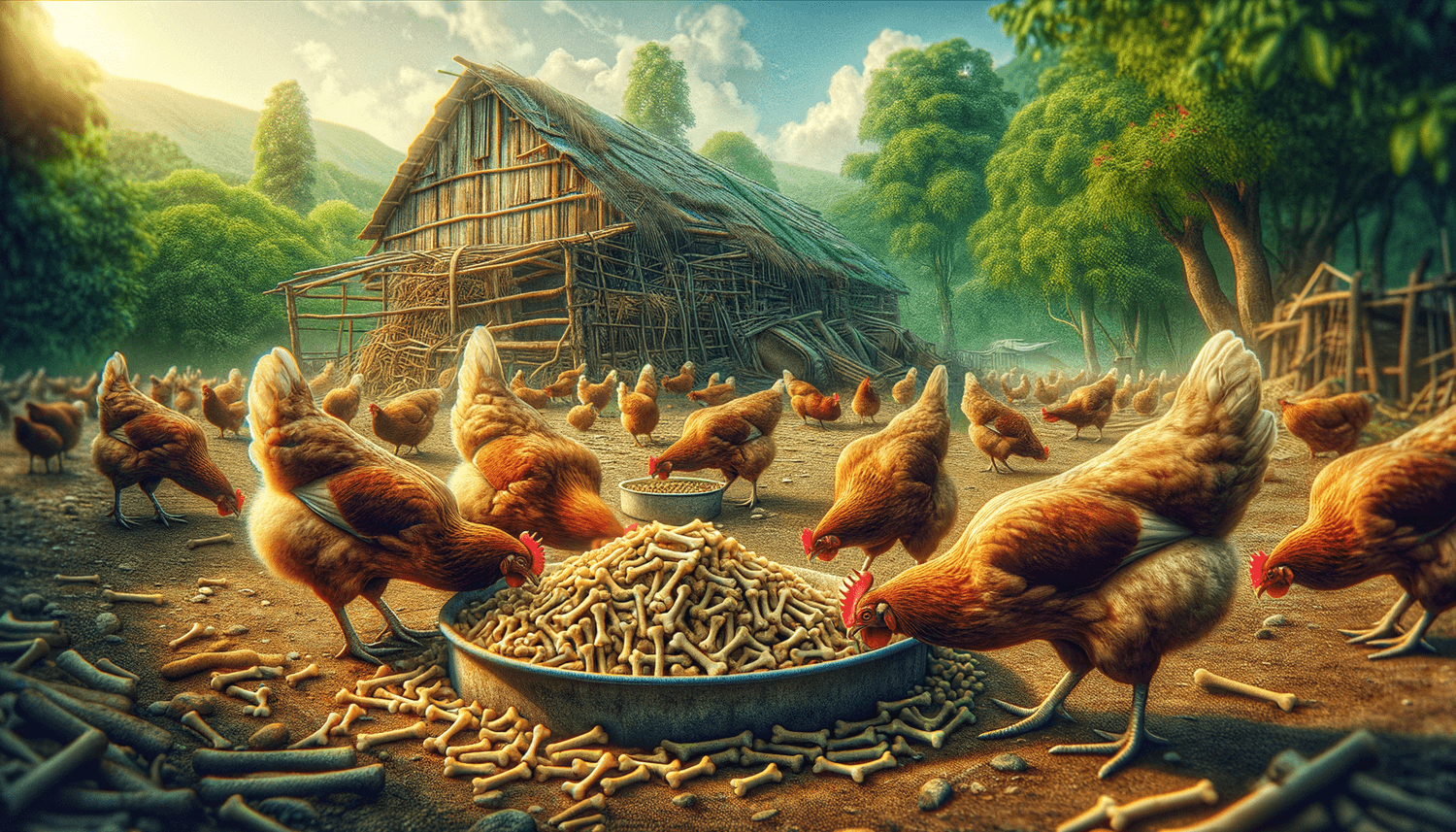Welcome, dear clucksters, to another exciting adventure in the fantastic world of backyard chickens! Today, we’re going to tackle one of the most intriguing queries, “Can Chickens Eat Bones?” Get ready as we peck our way through the mysteries of our feathery friends’ dietary habits, exploring the delicate balance of a nutritious diet, potential benefits and risks, the nutritional value of bones, and even some tips on how to prepare them as a treat!
Can chickens eat bones?
Yes, chickens can eat bones, but with some important caveats. Given their omnivorous nature, chickens naturally consume small bones while foraging for insects and other critters. However, it is crucial to only provide them with small, easily digestible bones, as large or sharp bones can cause impaction, choking, or internal injury. As such, moderation and proper preparation are essential for safety.
Chickens need a balanced diet, too!
Just like us humans, chickens thrive on a well-balanced diet. To keep your backyard chickens healthy and productive, it’s essential to provide them with the right mix of nutrients. A key component of their diet is high-quality chicken feed, which should make up approximately 80-90%. This chicken feed is designed specifically for optimal nutrition, containing a blend of protein, vitamins, minerals, and other essential nutrients necessary for their growth, egg production, and overall well-being.
Of course, it’s more than acceptable to treat your feathery friends occasionally. You can reserve the remaining 10-20% of their diet for delicious and nutritious treats like fruits and vegetables. These vitamin-rich snacks not only offer variety, but also help maintain a balanced diet for your backyard residents. Just remember, moderation is key when introducing treats to their meal plan – keeping the focus on high-quality chicken feed ensures your flock stays healthy and content.
Nutritional value of bones for chickens.
Feeding bones to chickens can provide some nutritional value, particularly with regard to calcium and phosphorus. Calcium plays an essential role in the development of strong eggshells and maintaining healthy bones. Phosphorus, on the other hand, contributes to the overall metabolism, energy production, and skeletal health of the chickens. Thus, small, easily digestible bones can offer these important nutrients to your flock.
Aside from calcium and phosphorus, bones also contain collagen and gelatin, which can promote joint health and provide additional protein. Protein is essential for building and repairing tissues in chickens, and it is particularly vital for their growth, feather development, and egg production. Moreover, when bones are cooked or processed, they release nutrients in their marrow, such as iron and zinc. Iron supports red blood cell production, while zinc ensures a well-functioning immune system.
It should be noted, however, that while bones can offer some nutritional value to chickens, they should not be the primary source of these nutrients because of their potential risks. Feeding your flock a high-quality chicken feed will generally provide all the essential nutrients they need. The consumption of bones should be a supplemental part of their diet, as long as they are provided in a safe form and in moderation.
Nutrition table of bones for chickens.
| Information | Description |
|---|---|
| Nutritional Value | Calcium, phosphorus, protein from collagen/gelatin, iron, zinc, marrow nutrients |
| Suggested Serving Size | Small quantities, occasionally; should not be the primary source of nutrients |
| Safe Feeding Practices | Provide small, easily digestible bones; avoid large or sharp bones |
| Preparation | Cooked or processed bones are safer; cooking/processing releases nutritious marrow |
| Potential Risks | Impaction, choking, internal injury from large or sharp bones; imbalance in dietary nutrients |
| Hydration | Bones do not provide hydration; always provide access to clean water |
| Digestion | Feeding appropriate bone sizes ensures easier digestion and proper nutrient absorption |
| Seasonal Availability | Not dependent on seasons; availability based on food preparation for human consumption |
| Other Benefits | Promotes joint health, supports overall metabolism and energy production |
How to prepare bones for your chickens
When preparing bones for your chickens, it is imperative to ensure their safety. Cooked and processed bones are generally easier for chickens to digest than raw ones. If you’re planning to share leftover bones from a family meal, make sure to remove any sharp or splintered edges as they can pose a choking hazard or cause injury. Boiling bones for a few hours to yield a nutrient-packed broth also allows for easier and safer consumption by your chickens.
Breaking the bones into smaller pieces improves digestibility and minimizes the risk of choking or impaction. It is important to avoid feeding your chickens large or long bones, as these can obstruct their digestive system or cause internal damage. Stick to feeding them small poultry or fish bones, and always monitor your chickens when introducing new food items into their diet.
Alternative sources of vital nutrients
While feeding bones can benefit your chickens, it’s crucial to remember that they should never replace a stable and balanced diet. It’s always wise to consider alternative sources of important nutrients, especially calcium, which is crucial for egg production and bone health. One popular source is crushed oyster shells or limestone, which provides a calcium boost and can be easily found in feed stores. Offering crushed eggshells is another excellent alternative, as it not only recycles the shells but also serves as a natural calcium supplement for your flock.
Ultimately, maintaining a balanced diet with the right proportion of chicken feed, occasional treats, and dietary supplements is vital for your chickens’ well-being. By providing the most appropriate sources of necessary nutrients, you can ensure that your chickens enjoy a healthy, productive, and happy life.

















